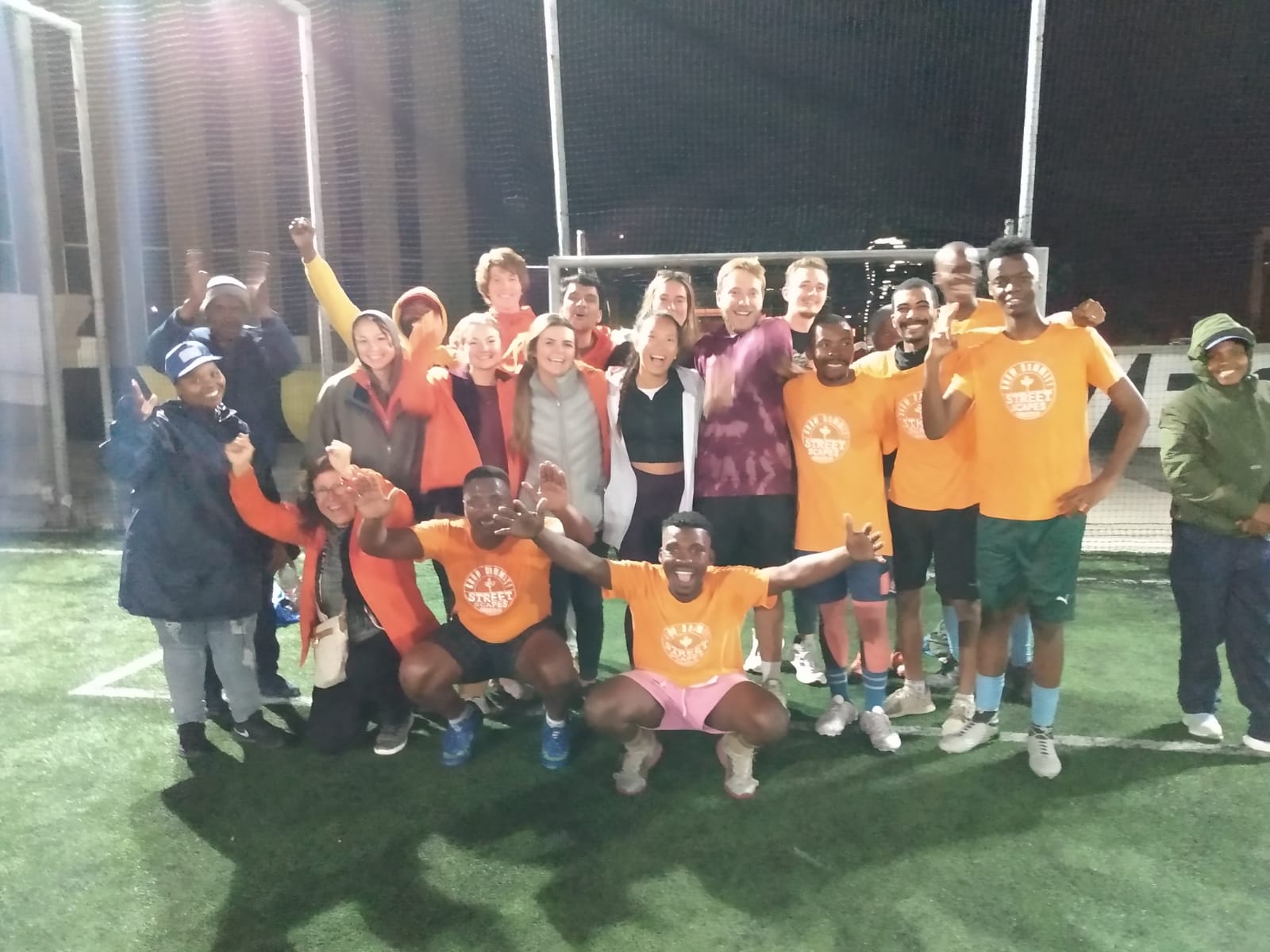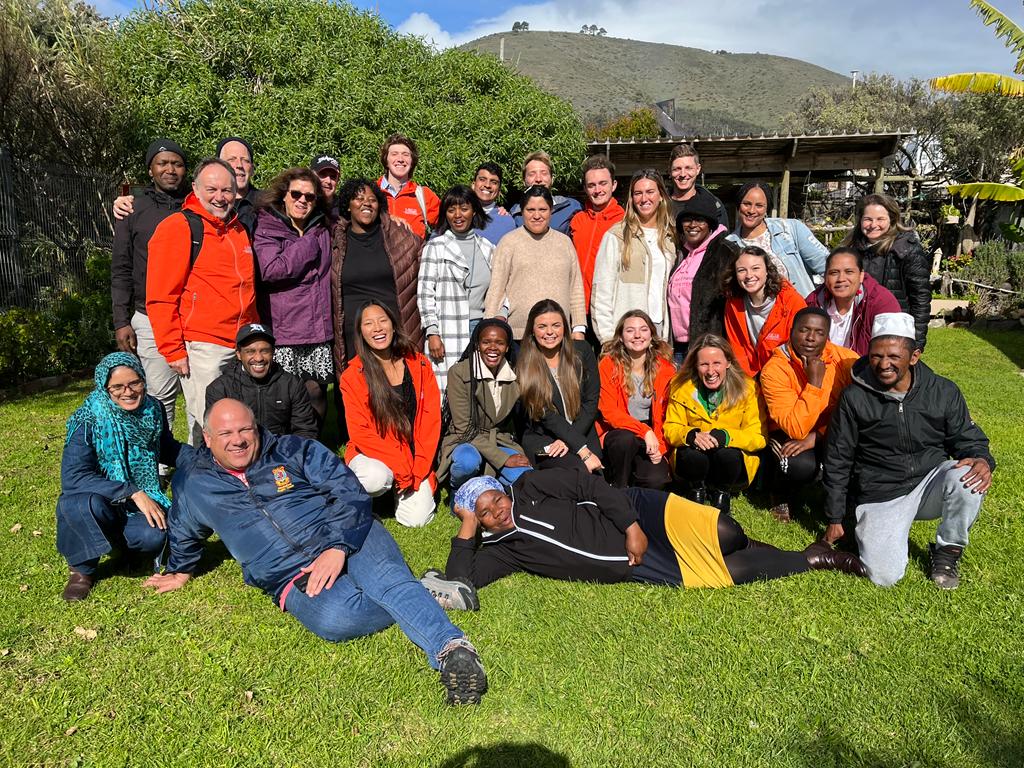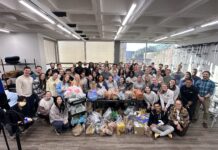
A Mercer On Mission team is helping a nonprofit working to combat homelessness in South Africa make its services more sustainable.
This summer, Mercer University students and faculty traveled to Cape Town, South Africa, to work with Streetscapes.
Streetscapes takes a holistic approach to helping South Africans get off the streets by providing housing; psychosocial services, like counseling and support groups; and work through the group’s small social enterprises, said Harold Tessendorf, an adjunct professor in the Stetson-Hatcher School of Business, who led this new Mercer On Mission program with Dr. Myriam Quispe-Agnoli, associate professor of economics.
“Their key objective (for the Mercer On Mission team) was to diversify their revenue sources,” Tessendorf said. “They’re very dependent on grant income, particularly from the local and national government, and that’s not always proven to be a reliable source of income.”
Over 14,000 people are estimated to be homeless in Cape Town, according to a 2020 report from U-turn, a nongovernmental organization in Cape Town, in partnership with nonprofit Khulisa Social Solutions and MES, a Christian social development organization. Half of those are considered to be chronically homeless, which means they’ve been homeless for more than one year and have a serious mental health condition or substance addiction, the report states.
“In Cape Town, one of the biggest problems is homelessness,” Quispe-Agnoli said. “Streetscapes is trying to tackle that, as well as other organizations, but one thing that I personally like about Streetscapes is they have this mission. The way that they’re trying to face this issue is not only providing (the homeless) with housing or social and psychological help, but they also are training them. They are providing them with job skills.”
The Mercer team’s goal was to make Streetscapes’ work programs more sustainable, so they not only provide training opportunities but also generate revenue that can help cover the overhead costs, Tessendorf said.
To do this, the students divided into four groups that each examined one of the following areas: business strategy, work processes, marketing and finance. They focused specifically on Streetscapes’ urban farms enterprise, which, in addition to providing work, also sells produce to the public.
The students interviewed managers, social workers and clients as part of their research and worked on the farms themselves, Quispe-Agnoli said.
The trip culminated with a presentation of their findings that included recommendations Streetscapes could implement to build up the business side of the enterprise.
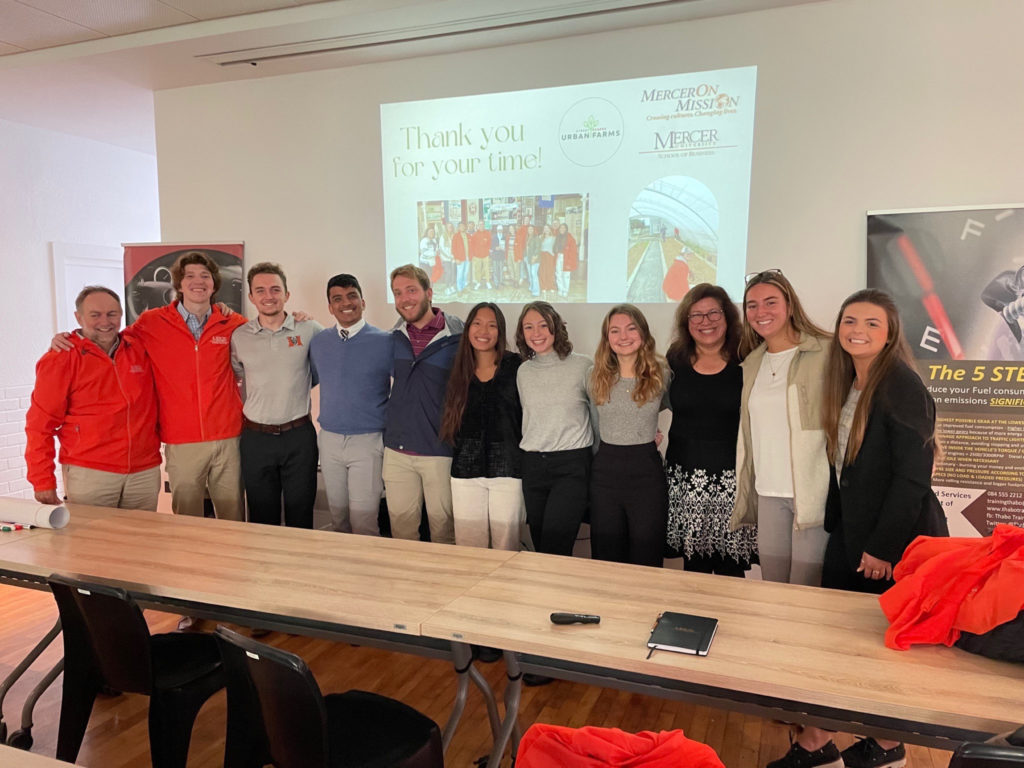
Ashton Bearden, a graduate student pursuing his Master of Business Administration, was on the team that looked at Streetscapes’ work processes.
The students found that the farms didn’t have any maps that showed the locations of the plant beds, so they created some. The maps would help Streetscapes plan its planting and help customers find the fruits or vegetables that they want to buy, he said.
“What I enjoyed the most was honestly working beside the clients and the upper administration there,” Bearden said. “Because when you work beside the clients, you kind of get a better idea of what they’re going through because they were homeless, and you understand how difficult it is for them, but you can also see how much their lives have changed because of this organization.”
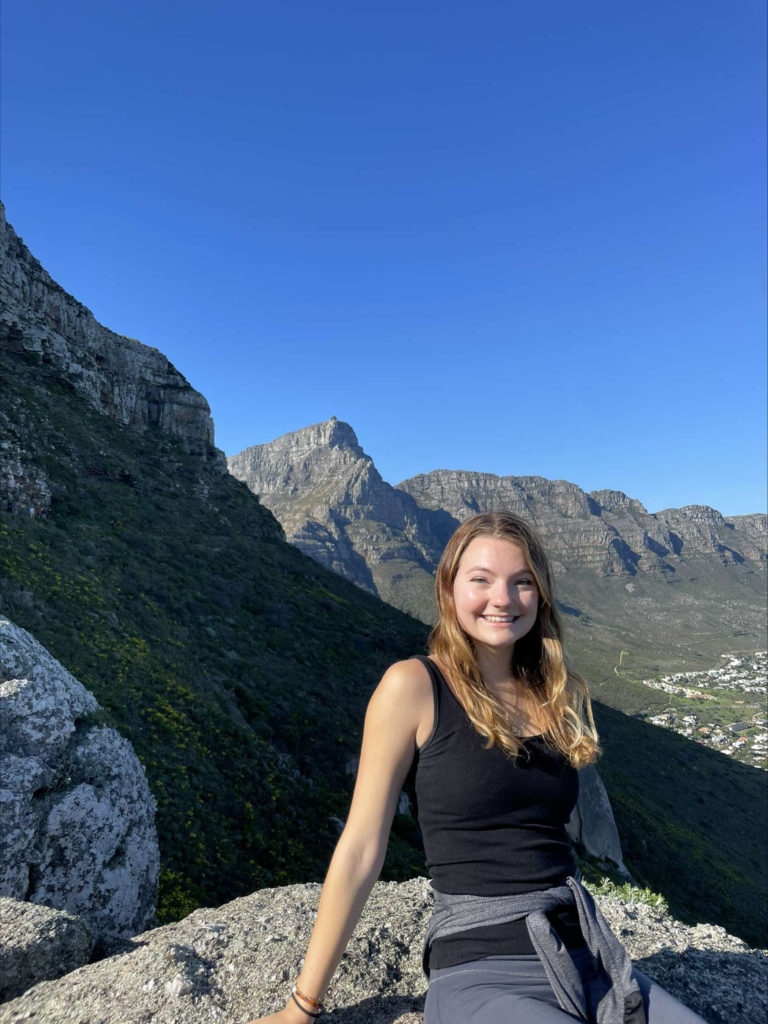
Eliza Moore, a junior double-majoring in English and journalism, served on the marketing team.
“Streetscapes really hadn’t allocated any funding or done any work with marketing before, so they acknowledged that they needed a lot of help,” Moore said. “We made a website for them, and we worked on giving them recommendations about how they could get their name out in the community through posters, signs and flyers and different strategies to get the community more involved.”
Her group also made packaging labels for Streetscapes’ products that told the group’s story, which is something that sets it apart.
The timing of the Mercer team’s visit couldn’t have been better, Jesse Laitinen, strategic partnerships manager for Khulisa Social Solutions, wrote in an email to The Den. Streetscapes is a program of Khulisa Social Solutions.
“We have been needing to structure our social enterprise programme better and had just in the beginning of the year invested resources in staff and market research,” he wrote. “Mercer’s visit enabled us to assess where we are at in terms of our strengths and weaknesses, as well as (provided us) with a very practical and reasonable list of recommendations that we are able to start implementing.”
Andrew Tulloch, operations manager for Streetscapes, said he found the Mercer students to be “incredibly smart, resourceful and engaging.”
“They made sure that they understood our operation and made sure to interview all stakeholders from management, staff, clients, sponsors, our customers and all involved in our project,” he wrote in an email to The Den. “They made sure that they involved themselves in each aspect of our operation to ensure that they understood what was happening and importantly how they could offer excellent solutions.
“We really value their recommendations and appreciate how they understood what Streetscapes is all about. The experience and everything were so well organized. We are really impressed with what was achieved in a relatively short space of time.”
While in South Africa, students also participated in sightseeing and cultural activities, including going on a safari, hiking Table Mountain, attending a rugby game and visiting the District Six Museum, which chronicles the history of District Six and other communities affected by residents’ forced removal during apartheid.
Tessendorf, who is from South Africa, said plans are in the works to return to the country next year for follow up and assessment.
